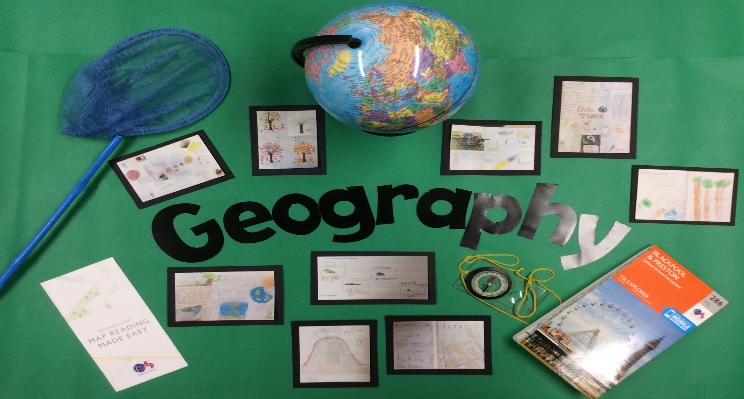‘We are God’s work of art.’

Geography is learning about the world and the behaviour of humans.
At St Anthony’s Catholic Primary we believe God created Earth and human beings, and acknowledge we have a duty to respect and care for Earth’s goodness and each other. Geography helps us to make sense of our surroundings, cultures and the wider world, as well as reflect upon the impact our lives have on our own and other environments.
Intent:
At St Anthony’s we are committed to ensuring that children receive a broad, balanced and relevant curriculum, which is fully inclusive to every child. Our aims are not only to fulfil the requirements of the National Curriculum for Geography, but to make it relevant for our children. We aim to do this by making links, where possible, to other curriculum subjects, but more importantly, by making the Geography curriculum relevant to our location: Preston, Lancashire.
We aim to inspire St Anthony’s children to develop a fascination and curiosity about the world, its people and different geographical processes. As an investigative subject, we intend to provoke thought, questions and to encourage children to discover answers to their own questions through exploration and research. We intend to equip our children with geographical skills to develop their knowledge about diverse places, physical environments and the human interaction with these environments, in order to facilitate an understanding of the world we live in and how we can care for it, as God expects us to.
Implementation
We use the National Curriculum for Geography as a basis for our curriculum planning. With consideration to our mixed year group classes, units of work are set out in long term plans over a two-year cycle with cross-curricular links to other curriculum subjects made and, where possible, with local relevance for our children. There are no longer any set 6 week Geography units: this allows for flexibility and cohesion with other curriculum subjects.
Teachers have identified the key knowledge and skills of each unit of work and consideration has been given to ensure progression of these across the school.
Units of work include the four core areas of Geography taught over the year, with geographical skills and knowledge being revisited in order to embed and deepen understanding. At the beginning of each topic, children are able to convey what they know already and what they would like to find out. This, along with discussions with previous year group teachers, helps to identify any gaps in learning and informs the planning, ensuring the lessons are relevant and take into account children’s different starting points. Teachers use a range of approaches to ensure accessibility for all, as well as provide appropriate challenge to different groups of learners. Such approaches include: teacher presentations; research based activities; discussions and debates; investigating maps and photographs and digital mapping. Furthermore, in KS1, learning can take place through independent ‘learning zone’ opportunities that are carefully planned for and tailored to the curriculum.
Teachers are encouraged to consider opportunities to get out of the classroom and to use the school grounds and local area for fieldwork in each unit of work, enabling children to base learning on first hand experiences to enhance teaching and learning in Geography. Trips and visitors are encouraged to enhance the learning experiences for the children.
Early Years Foundation Stage
Aspects of Geography appear within the area of learning called Understanding the World in the EYFS Framework, which is the curriculum for our Reception children. It is an integral part of topic work covered during the year. Teachers use a further highly recommended document called ‘Development Matters’ to aid their planning and implement a range of opportunities to develop children’s own sense of their physical world and their community.
Impact
The impact of our Geography curriculum is that our children are equipped with the geographical skills and knowledge to explore, navigate and understand the world around them and their place in it.
Assessment is ongoing and teachers will focus on the individual’s personal competence and understanding through: discussions; observations; recordings; use of equipment and investigations. A summative assessment, which reflects the Geography National Curriculum and the Lancashire KLIPs documents for KS1; Lower KS2 & Upper KS2 is completed at the end of each Geography unit and used to inform future planning.
Geography Overview of Key Knowledge
EYFS Learning Geography KS1 Learning Geography KS2 Learning